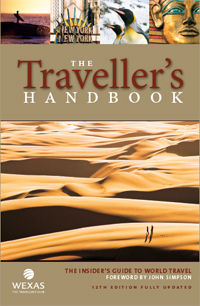Article content
30 August 2012 by Alex Stewart
If you're about to book a holiday, Dave Warne looks at how you can secure the best value airfares and offers some insightful tips and recommendations on how to make savings when it comes to booking your next escape.
Essentially the price you pay for a seat on an aircraft is determined by the age-old principle of supply and demand. Most seasoned travellers know that there are low and high seasons, but what is less well known is that airlines use sophisticated computer programmes to determine how many seats to sell at any given price for every flight.
Add in geo-political factors, discounting and clever marketing, and it's no wonder that it's hard to understand why airfares vary so widely. So how do you ensure that you get a good deal on your flight? The bad news is that there is no absolute guarantee of getting the cheapest fare but following these hints can put you on the right track:
Book early
Airlines are increasingly encouraging passengers to pay early with lower 'early booking' fares, as they can earn interest on passengers' money. Last-minute offers are less common than a few years ago and tend to apply only on routes where supply hugely exceeds demand during off-peak seasons. For more unusual destinations and peak travel periods - such as Christmas, Easter, school holidays and bank holidays - booking early is essential; the later you book the more the fare is likely to cost and you may not be able to get seats at all.
Avoid weekends
Workers often want to maximise their time away whilst minimising time out of the office. Friday night and Saturday flights outbound and Sunday flights inbound have fewer cheap seats, and these sell out quickly.
Indirect flights
By taking a flight with a change of plane en route (for example Amsterdam and Dubai are popular transit airports from the UK) you can sometimes find a cheaper fare than those offered by direct airlines. More recently, however, oil price increases have lead to most airlines applying 'fuel surcharges' for each flight and with two flights from origin to destination rather than one, the total fuel surcharge will be higher for indirect flights than direct flights. An indirect flight will also increase your travelling time and your carbon 'footprint'.
Flexibility comes at a price
The more flexibility you need the higher the fare will be. So, if you can fix your travel dates and dispense with any thoughts of changing your plans later you can qualify for the cheapest fare types, which generally don't allow any changes or refunds (remember to take out travel insurance at the time to cover unplanned cancellation).
Book other things at the same time
Making hotel, tour and car hire bookings at the same time enables agents such as Wexas to offer you specially negotiated 'inclusive tour' fares as part of an individually tailored package. Agents are not allowed to advertise these fare levels, but they can work out significantly cheaper than the 'flight only' levels, particularly in the premium cabins.
Internet fares
There is a widespread belief that the best fares are available online. Whilst this can be true for some simple flight itineraries, the technology of even the most advanced online booking systems has limitations. As a general rule, the more complex the trip or the more unusual the destination, the greater the chance that you will find a better fare by speaking to an experienced travel consultant.
Ultimately though, there is no magic formula, but planning as far ahead as possible will certainly increase your chances of getting a good deal.
Left it late? Airline sales now on
If you have left it late, there are a number of excellent airline sales on at the moment, featuring British Airways, Cathay Pacific, Emirates and Virgin Atlantic amongst others, where a savvy traveller can still pick up a great flight fare; call a member of our team to discuss what's available.

This article was originally published in the Traveller's Handbook
If you've any money-saving advice of your own, please add it to the comments below:
.






